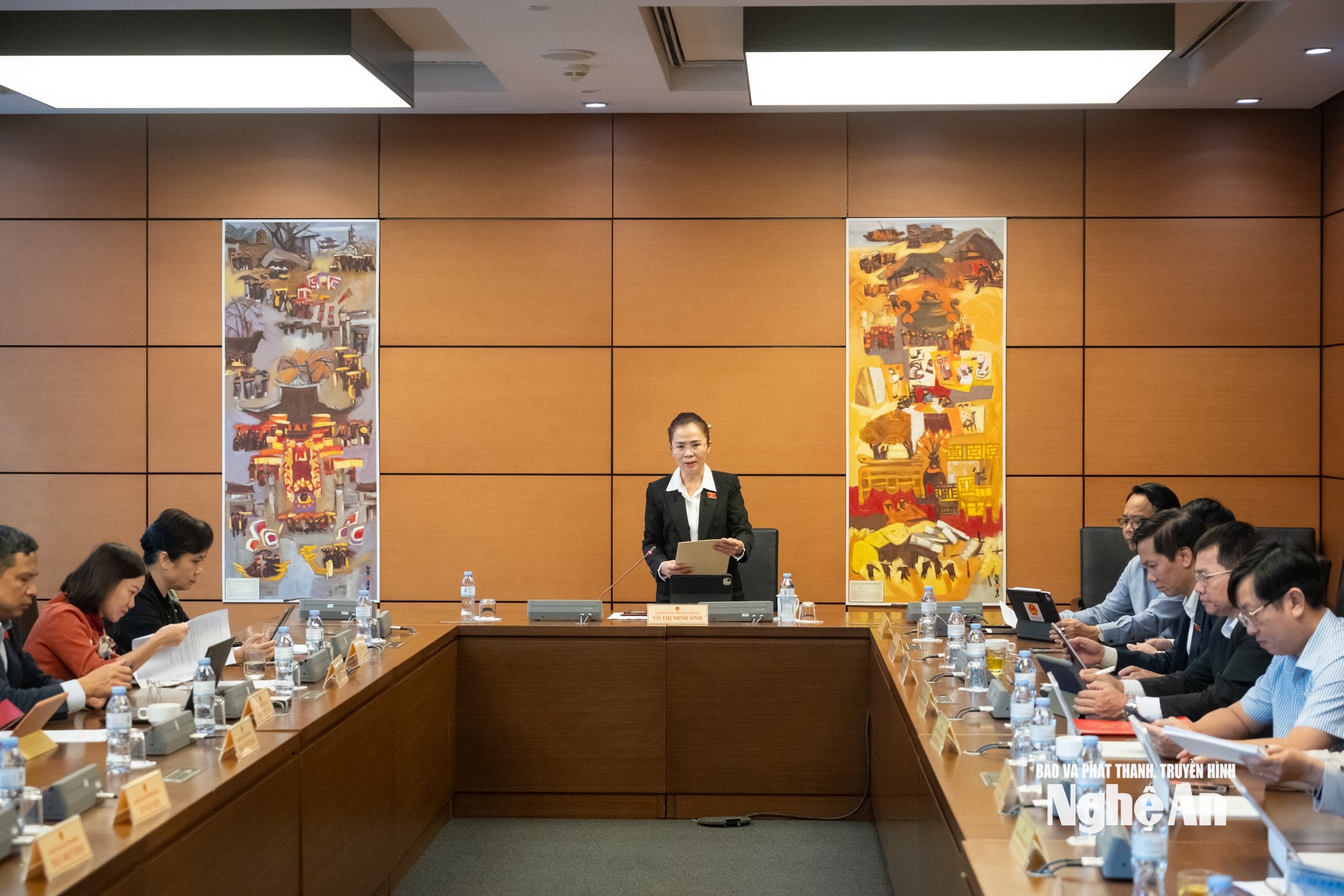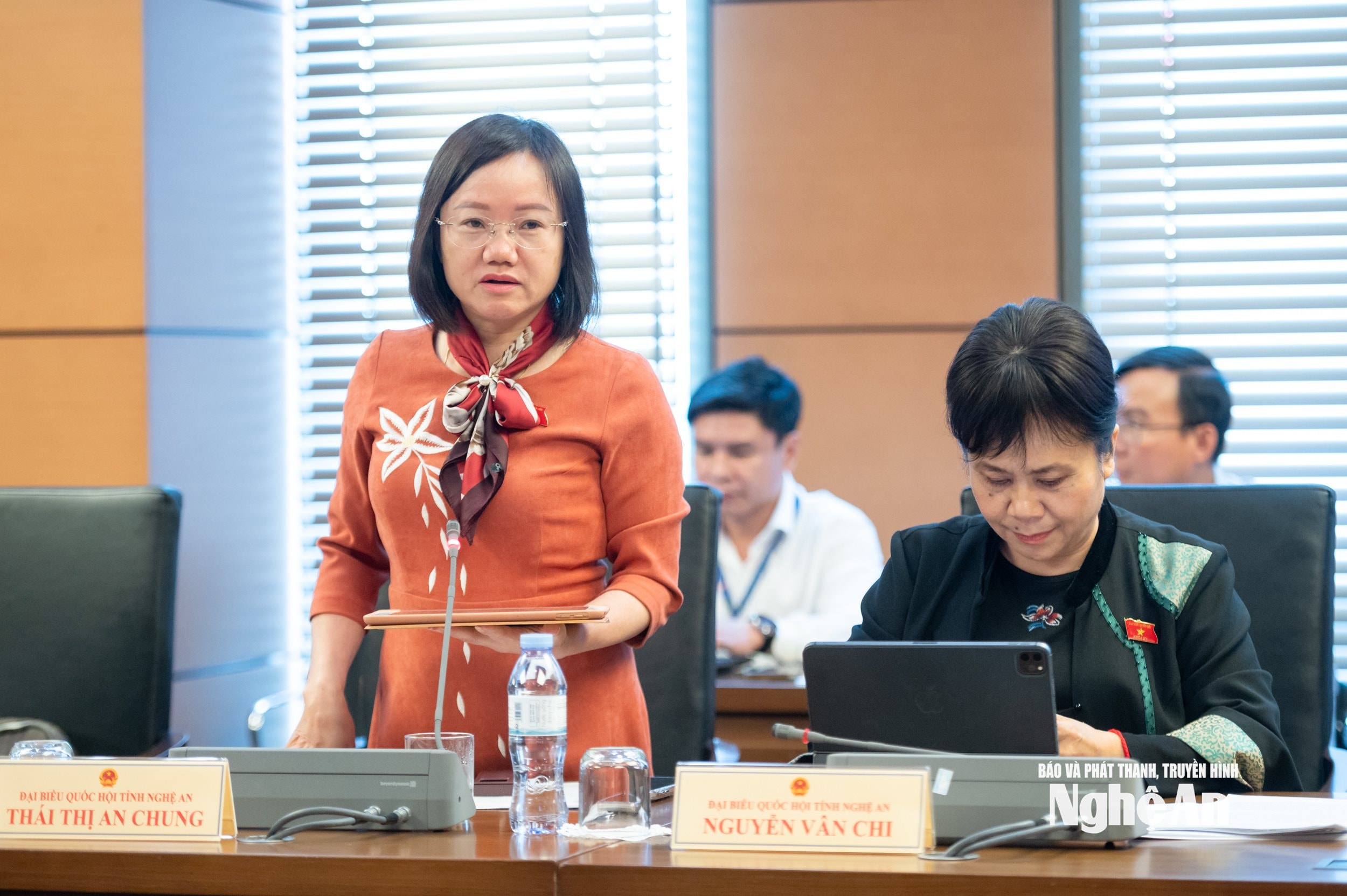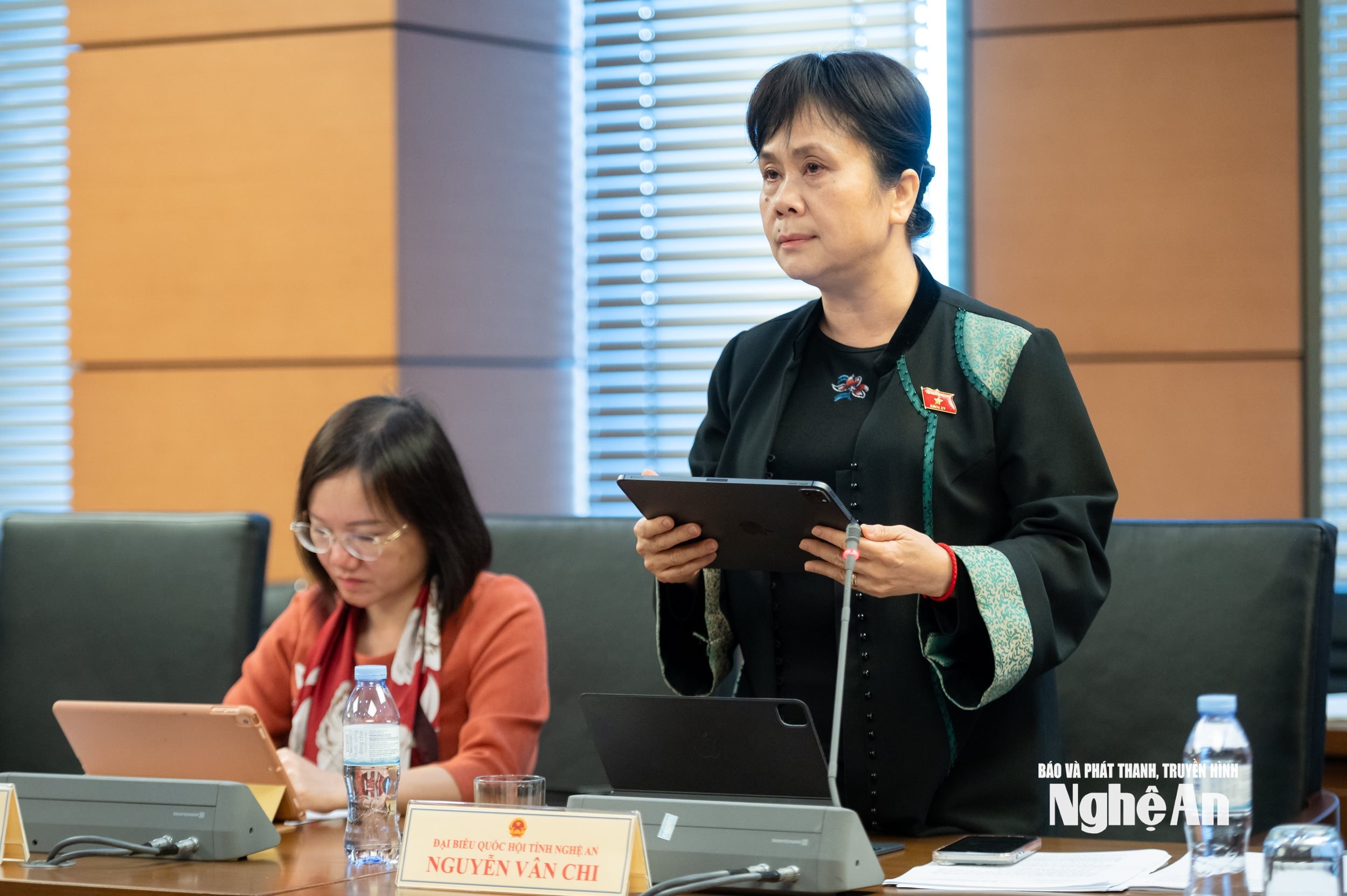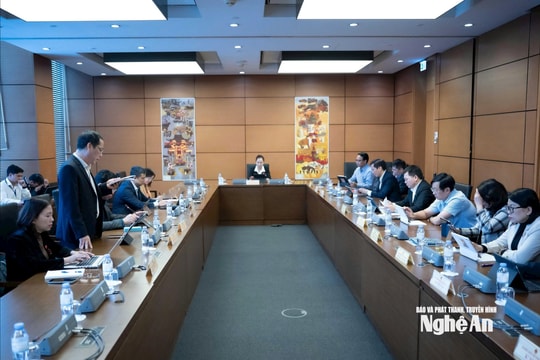National Assembly Delegate of Nghe An: Should not 'equalize' the family deduction level
At the discussion session on the draft Law on Personal Income Tax (amended), delegate Thai Thi An Chung - Deputy Head of the National Assembly Delegation of Nghe An proposed that the regulation on family deductions must reflect the actual difference in living expenses between regions to ensure fairness for taxpayers.
On the afternoon of November 5, the National Assembly discussed in groups three draft laws including: Tax management (amended); Personal income tax (amended); Saving and anti-waste.

The Government is given the right to adjust family deduction levels.
Discussing the draft Law on Personal Income Tax (amended), delegate Thai Thi An Chung - Member of the Provincial Party Executive Committee, Deputy Head of the National Assembly Delegation of Nghe An said that amending the law is necessary and has been expected by voters for a long time.
She said that at the 9th Session, she questioned the Minister of Finance about the progress of the revision and now, when the draft was submitted with a complete dossier, "I am very excited because many contents have been adjusted."
However, giving specific comments on two key issues, Ms. Thai Thi An Chung stated that the expansion of taxable income from salaries and wages and regulations on family deductions both need to be carefully considered to ensure fairness and feasibility when applied.

Regarding the expansion of taxable income from salaries and wages, she analyzed: According to the current Law, taxable income from salaries and wages includes salaries, wages and similar amounts, along with some allowances and subsidies, except for those listed in the law. This time, the draft adds "remuneration and benefits in cash or non-cash in any form" to the taxable amount.
“I am really concerned about this regulation,” she said. “Are things like company-sponsored lunches, Tet gifts, mooncake boxes, June 1 gifts for employees’ children, or a company trip considered as monetary benefits for tax purposes?” while benefits are the glue that binds employees and employers.
According to the Nghe An delegation, such a regulation is too broad and difficult to define, leading to many practical consequences: Enterprises will have to spend more money and time to separate and evaluate each small benefit, causing "compliance costs". Tax authorities will find it difficult to develop a method of calculation to ensure fairness. Employees may feel "unsatisfied" because any support is considered taxable income.
From there, she said that this needs to be reviewed and proposed 3 specific recommendations: Clarifying the exclusions through clear regulations in the Law or in the Government's guiding documents on non-taxable items; removing the phrase "in any form"; considering a reasonable threshold such as only calculating tax on cash or non-cash benefits exceeding a certain level.
"In summary, if the current draft is kept as it is, it is not highly feasible and should not be included," said the Deputy Head of the National Assembly delegation of Nghe An province.
Regarding the regulations on family deductions, Nghe An delegates especially emphasized that this is an issue that voters have been reflecting on for many years.
Ms. Thai Thi An Chung positively evaluated the new point in the draft, which is to give the Government the right to adjust the family deduction level instead of having to wait for the Consumer Price Index (CPI) to increase by 20% as currently regulated. This is a direction in line with the current decentralization and delegation policy.
However, she said there is still a major problem that has not been resolved: The regulation on family deductions still applies a common level to all regions, while in reality, salaries are currently paid according to 4 regions.
“The cost of renting a house, healthcare, education, living expenses, and transportation in Ho Chi Minh City or Hanoi is clearly different from that in Nghe An or Ha Tinh,” the delegate said, suggesting designing a flexible family deduction mechanism through a regional adjustment coefficient, similar to the regional minimum wage policy.
Specifically, delegate Thai Thi An Chung proposed to amend the draft Law in the direction: “Family deduction is the amount deducted from taxable income. Based on price and income fluctuations, the Government shall prescribe the basic deduction level and adjustment coefficient by region, in accordance with the socio-economic situation, actual living expenses, in line with the regional minimum wage policy in each period”.
Concerned about the level of "framing" being too high
Discussing in groups about the draft Law on Practicing Thrift and Combating Wastefulness (amended), Ms. Nguyen Van Chi - Deputy Head of the National Assembly's Economic and Financial Committee, delegate of Nghe An delegation, said that this draft shows a clear change in approach compared to the current Law.
According to her, while the current law provides relatively specific and detailed regulations for each field, the new draft has shifted to a "framework law" direction, which is more general and thorough. However, according to her, this level of "framework" is too high, causing many important contents of the current law to no longer appear in the draft.
“In the entire draft, the specific content of thrift practice has not been seen. The draft also does not assign the Government to clearly regulate this content, so it is very difficult to determine how thrift practice will be carried out in reality,” said Ms. Nguyen Van Chi.

The delegate from Nghe An also pointed out some other shortcomings in the law-making process. Specifically, the draft Law is currently being drafted in a shortened format, so there is no draft decree attached, so the delegates have no basis to visualize in detail how the Government will regulate and guide the contents of thrift practice.
“The draft stipulates that the Government should provide guidance on wasteful behavior in Article 3, but does not mention the corresponding practice of thrift. So, who will provide guidance, and how will this activity be implemented?” asked the delegate from Nghe An.
From that, Ms. Nguyen Van Chi said that if there is a lack of specific regulations on practicing thrift, the supervision work of the National Assembly agencies will face difficulties in the future.
“When supervising the implementation of the law, if there are no specific regulations, it is very difficult to assess the actual effectiveness of thrift practice. Compared to the old law, this content has been significantly toned down,” she commented.
On that basis, delegate Nguyen Van Chi requested the drafting agency to provide more information on these issues. If necessary, the time for approval should be considered to be postponed to the next session to have more time to complete the draft and fully prepare sub-law documents.





